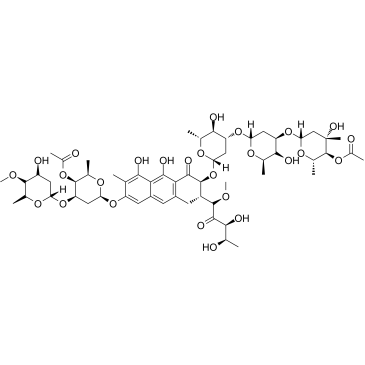Evaluation of ubiquitin and annexin V in sperm population selected based on density gradient centrifugation and zeta potential (DGC-Zeta).
M Zarei-Kheirabadi, E Shayegan Nia, M Tavalaee, M R Deemeh, M Arabi, M Forouzanfar, Gh R Javadi, M H Nasr-Esfahani
文献索引:J. Assist. Reprod. Genet. 29(4) , 365-71, (2012)
全文:HTML全文
摘要
Sperm that bypass natural apoptosis and the ubiquitin-proteasome system may find their way into semen. In order to avoid the insemination of such sperm during an intracytoplasmic sperm injection (ICSI) treatment, novel sperm selection procedures such as the Zeta procedure have been implemented. Therefore, the aim of this study was to evaluate extent of ubiquitination and external phosphatidylserine (EPS) in sperm populations selected by combines density gradient centrifugation (DGC) and Zeta electric potential in comparison to DGC and neat semen samples.Semen samples were collected from 51 infertile men and divided into control, DGC and DGC-Zeta groups. Semen analysis was carried out according to World Health Organization criteria. The percentages of protamine deficiency, DNA fragmentation, EPS and ubiquitinated sperm were assessed by chromomycin A3 (CMA3), TUNEL, Annexin V, and immunostaining, respectively.Sperm selected by the DGC-Zeta procedure presented a lower percentage of sperm with protamine deficiency, abnormal morphology and DNA fragmentation while the percentage of annexin V and ubiquitin-positive sperm increased.The results of this study reveal that, DGC-Zeta improves the quality of the selected spermatozoa for ICSI and increases ubiquitination and EPS rates. We propose these alterations are part of the normal physiological process of capacitation.
相关化合物
| 结构式 | 名称/CAS号 | 分子式 | 全部文献 |
|---|---|---|---|
 |
色霉素A3
CAS:7059-24-7 |
C57H82O26 |
|
High diversity in CMA3/DAPI-banding patterns in Heteropteran...
2014-01-01 [Cytogenet. Genome Res. 142(1) , 46-53, (2014)] |
|
Association of aureolic acid antibiotic, chromomycin A3 with...
2012-04-01 [Biometals 25(2) , 435-50, (2012)] |
|
Evaluation of sperm's chromatin quality with acridine orange...
2009-01-01 [J. Assist. Reprod. Genet. 26(11-12) , 591-6, (2009)] |
|
Differential inhibition of restriction enzyme cleavage by ch...
2010-05-15 [Biochem. Pharmacol. 79(10) , 1418-27, (2010)] |
|
The impact of spermine competition on the efficacy of DNA-bi...
2009-01-01 [J. Inorg. Biochem. 103(12) , 1626-33, (2009)] |